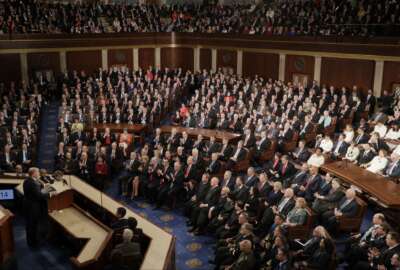
It’s about time agencies stop paying dead people, legislators say
Giving agencies better access to accurate, timely death records could help curb improper payments to deceased employees.
Legislation introduced today in both the House and Senate will make access to death records more timely for federal agencies, thus curbing fraudulent payments to the deceased.
Sen. Mark Warner (D-Va.) introduced the Stopping Improper Payments to Deceased People Act on Feb. 6 with bipartisan, bicameral support. Warner introduced similar legislation in 2015 with the same goal of cutting down on government spending.
“This should be a no-brainer: One of the easiest ways we can cut down on government waste, fraud and abuse is by stopping fraudulent payments made to deceased people,” Warner said. “The federal government has the responsibility to be a good steward of taxpayer money, and this legislation will help us improve the nation’s fiscal health by saving taxpayers millions of dollars lost to bureaucratic oversight.”
Complete death records for federal employees, and Americans in general, are maintained primarily by the Social Security Administration. Only a limited number of federal agencies have been given access to this list.
“Most federal agencies rely on a slimmed down, incomplete and less timely version of the death information,” a press release said. “As a result, many federal agencies make erroneous payments to people who are actually deceased.”
In September 2017, the SSA uncovered $37 million in improper payments to deceased veterans alone.
However, with data always comes the margin of error. In this case, the same audit showed at least 11 percent were in fact alive and incorrectly marked as deceased, according to an Aug. 29, 2017 SSA IG report. So the issue goes both ways.
The SSA IG also reported in 2015 that there were 6.5 million people with active Social Security numbers that were more than 112 years old. The Internal Revenue Service also reported in 2016 that it paid $239 million in “suspect” tax refunds, according to the press release.
Key provisions within the new legislation focus primarily on three areas:
- Granting federal agencies more access to death records
- Increased oversight to curb improper payments based on the data
- Improvement and regulation of information gathering of death records to ensure accuracy and quality
Currently, only agencies that deal directly with beneficiary payments have access to the complete data. The bill would give access to all appropriate federal agencies for “program integrity purposes,” as well as “other needs such as public and safety,” the press release said.
Procedures would also need to be established in those agencies to ensure more accurate and timely data. For example, agencies would need to better screen the data for those individuals over a certain age.
The legislation was in joint effort with Sens. Tom Carper (D-Del.), John R. Kennedy (R-La.) Claire McGaskill (D-Mo.) and Gary Peters (D-Mich.). A companion bill was also introduced in the House by Reps. Cheri Bustos (D-Ill.) and Greg Gianforte (R-Mont.).
Copyright © 2025 Federal News Network. All rights reserved. This website is not intended for users located within the European Economic Area.
Steff Thomas is a digital editor at Federal News Network.
Related Stories





